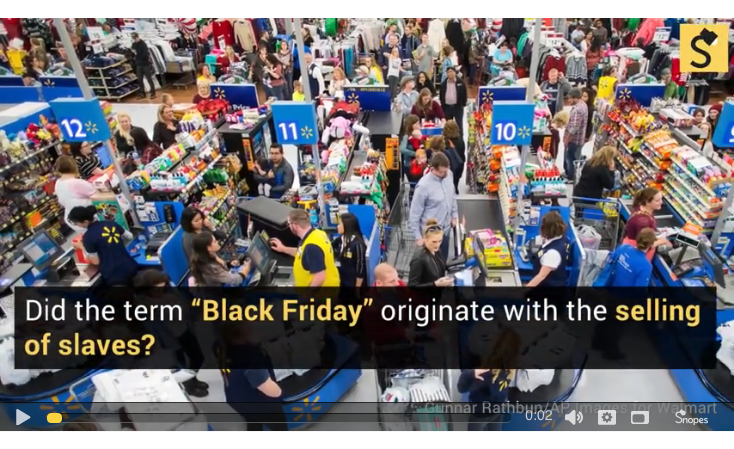Image courtesy: snopes.com
In what has become an annual ritual of debunking a resilient viral hoax, stories still abound online that the term has it’s origins during the times of US slavery.
As the commemoration of the popular annual retail event has spread around the world over recent years, so too have the speculations around the origins of the term ‘Black Friday’.
And with ‘Black Friday’ now also having become a thing in Namibia, these hoaxes around the day have followed it onto Namibian social media.
One of the most enduring hoax narratives surrounding the term, and the day itself, is that it originated during the times of the antebellum South – before the US civil war of the 1860s – when slavery formed the backbone of the economies of the southern US states.
Just Google or Youtube search ‘Black Friday’ and slavery and a whole trove of speculative articles or videos emerge about the slavery origins of the term and day.
‘Black Friday’ originated in the US – although it’s unclear exactly when, but probably around 1950 – and is the shopping day following the national Thanksgiving Thursday holiday in that country.
Already in 2013, US-based fact checker Snopes debunked the linking of the term ‘Black Friday’ to the era of US slavery:
“The use of “Black Friday” as a descriptor for the day after Thanksgiving has nothing to do with the selling of slaves, though, and the term didn’t originate until nearly a century after the practice of slavery was abolished in the U.S.”
As to how the term was popularised, Snopes states:
“By 1961 the term “Black Friday” (and “Black Saturday” as well) was being commonly used in a derisive sense by Philadelphia police, who had to deal with the mayhem and headaches caused by all the extra pedestrian and vehicular traffic created by hordes of shoppers heading for the city’s downtown stores on the two days after Thanksgiving …”
For more on the Snopes’ debunking of the slavery link to ‘Black Friday’ and how and where the term probably emerged, go to:
And here’s another explainer video of how the day got its name:

